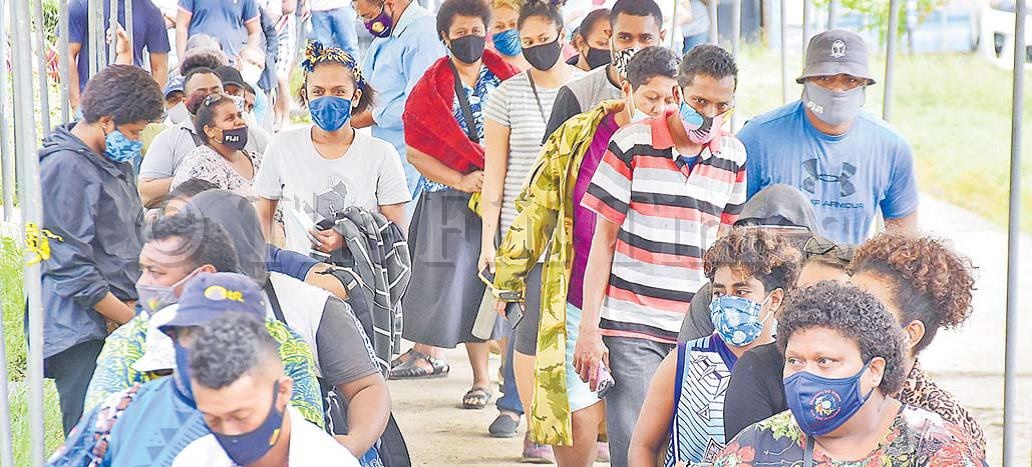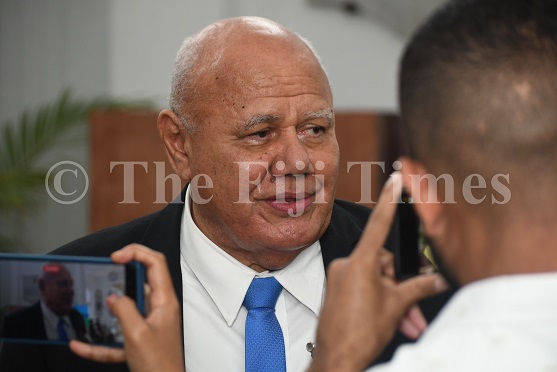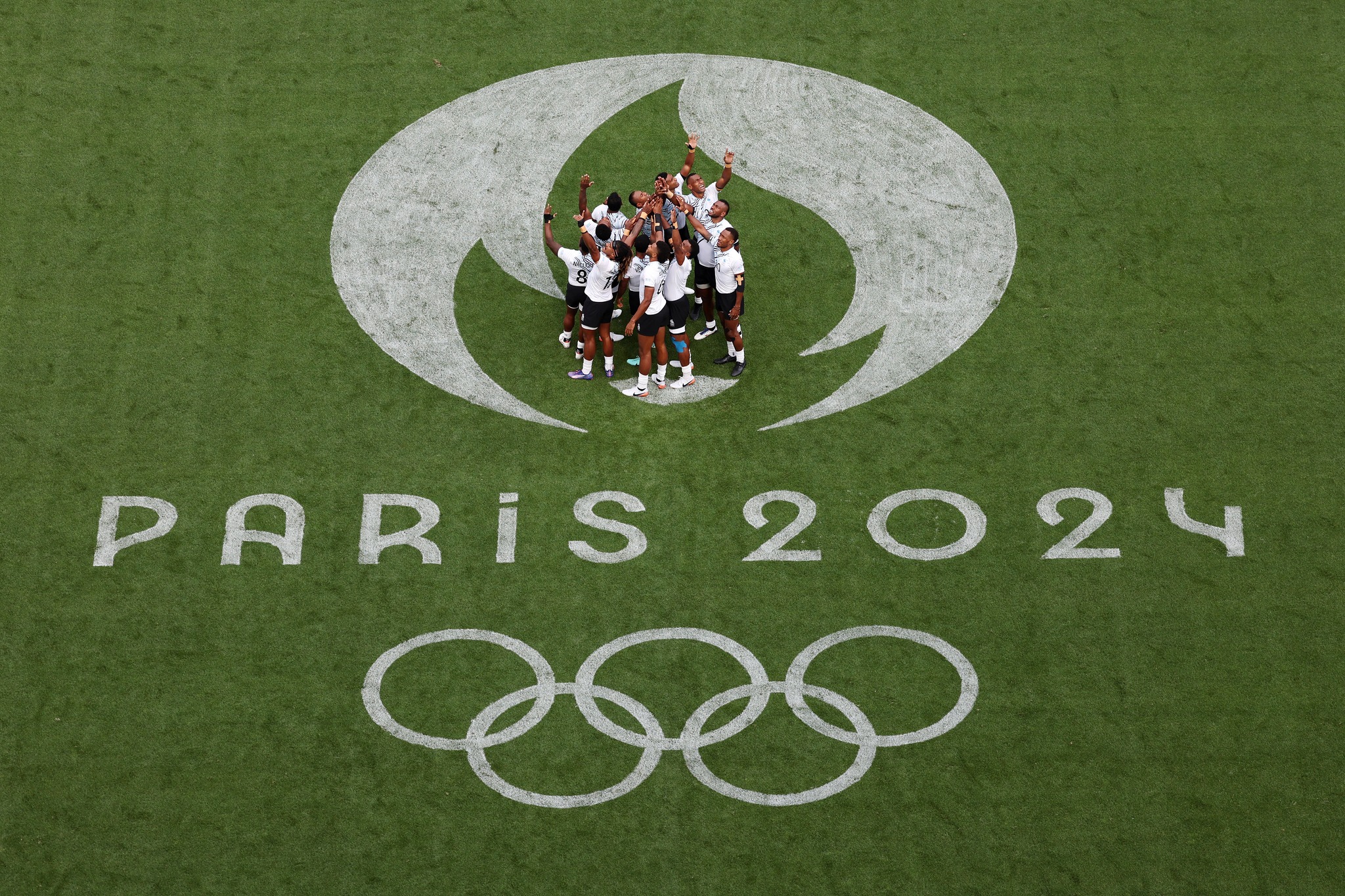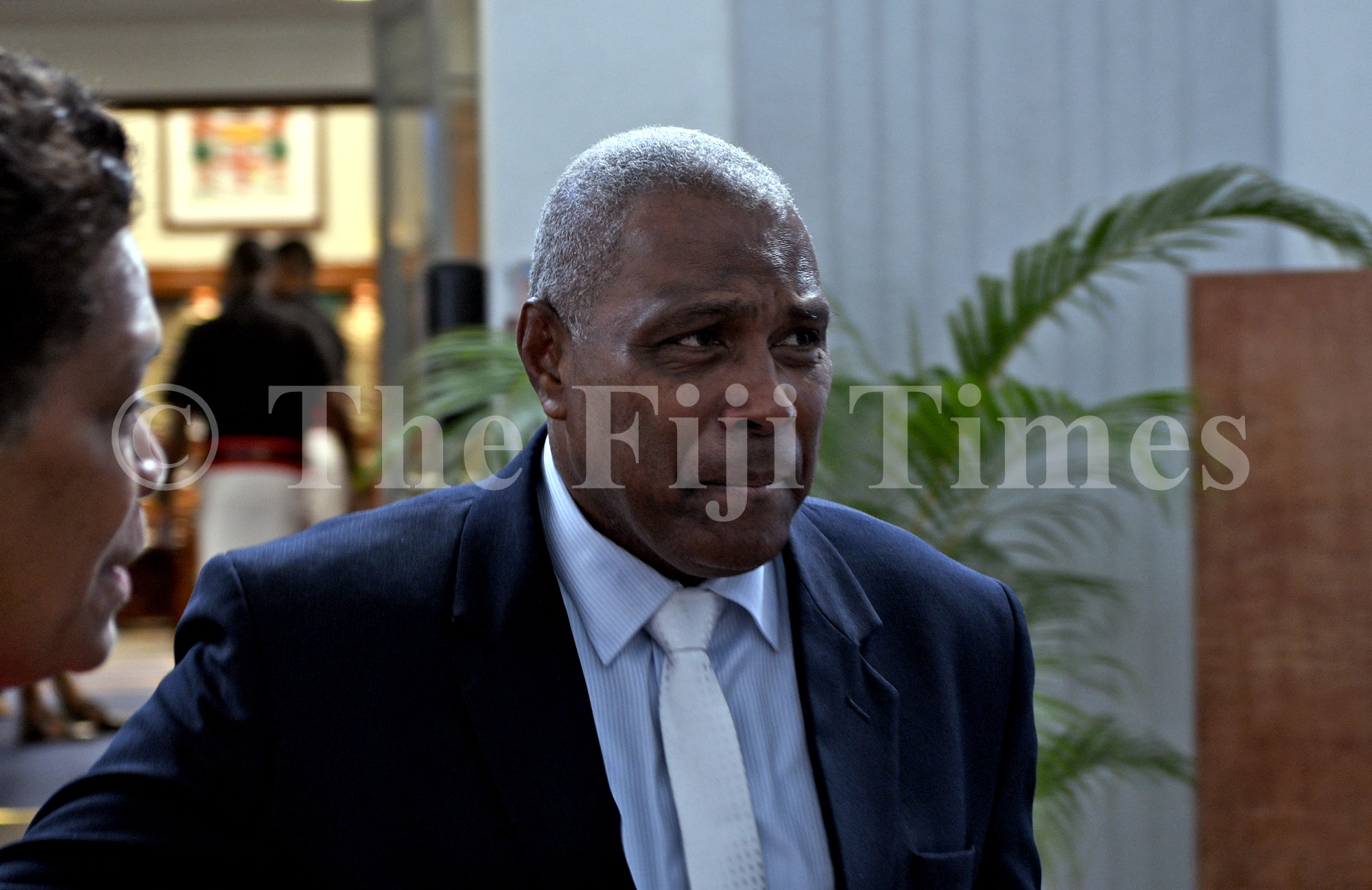Fiji is facing formidable and unprecedented challenges in managing what is now a public health crisis due to COVID-19, the magnitude of which this country has never faced before (barring the exception of the measles epidemic in 1875 which killed about 40,000 people).
Already worldwide, there have been more than four million deaths as a result of COVID-19 infections. There have been at least 74 reported deaths in Fiji since the second COVID-19 wave in April this year. Two days ago, 1220 new COVID-19 cases and five deaths were reported.
While voluntary vaccination has its supporters, there is a significant body of anti-vaxers in Fiji who are opposed to receiving the vaccine. The ostensible reason for widespread vaccination is to achieve herd immunity for the population, a situation where as much as 90 per cent of the population could attain immunity.
According to this scenario, the virus can be eliminated by reducing the number of hosts it can infect, causing it to die out rather than transmit further. As a result, the whole community becomes protected, not just those who are immune.
As of July 8 2021, 340,334 adults in Fiji have received their first dose of the vaccine and 62,445 have received their second doses. This means that 58 per cent of the target population have received at least one dose and 10.6 per cent are now fully vaccinated nationwide.
On July 8, 2021, Fiji’s Prime Minister made a national broadcast and said public servants who have not received their first dose of the vaccine had to go on leave from past Monday and would be unable to return to work until they had at least received the first dose of the vaccine.
He apparently announced a deadline of August 15 2021 for vaccinations, following which they could return to work provided they were fully vaccinated by November 1 2021. Public servants were warned that those who chose not to follow “these guidelines” would be dismissed from employment.
The tone and finality of the Prime Minister’s directive has been met with shock and even resentment in some quarters, both on ethical and legal grounds.
Under Part 14A of the Covid-19 Vaccination of the Health and Safety at Work (HSW) (General Workplace Conditions) (Amendment) Regulations 2021 vaccinations are now compulsory for all employers and workers as a condition of entering “the workplace”. It is arguable whether this applies to the public service.
Under the Health and Safety at Work Act 1996, employers are legally obliged to protect the health and safety of every worker or visitor to the employer’s workplace.
The permanent secretary for Education, Dr Anjeela Jokhan, has referred to Article 127(8) of the Constitution and has reportedly told the country’s 13,000 school teachers to get the vaccine or face termination.
No one doubts that by law, the Minister for Education is able to set the terms and conditions of employment for her staff members.
What must not be forgotten, however, is that once terms and conditions have been accepted in an employment contract, an employer cannot unilaterally change the contracts of his or her staff members without first obtaining their approval. After all, a contract is an agreement to which both parties have agreed.
The government’s regulations on mandatory vaccinations have been met with opposition and concern from various quarters including some doctors, trade unionists and the Fiji Law Society.
There are serious reservations whether the government’s new regulations are lawful. Many of those who have criticised the government’s “forced” vaccination campaign are actually supportive of vaccination. They are at the forefront of the campaign to vaccinate, but they do not agree in coercing anyone to be vaccinated.
What they take issue with is the manner in which the vaccination has been promoted: “No jab, no job!”
They see this as high handed and threatening, with little regard for different viewpoints, especially if the directive impinges on the exercise of fundamental human rights protected under the Constitution. The new government laws come at a time when thousands of people in the country have lost jobs and are languishing in poverty.
Historical vaccinations
The present controversy over forced vaccinations is not new. In 1796, Edward Jenner created the first vaccination against smallpox which killed millions worldwide. In Britain, the Vaccination Act of 1853 which made smallpox vaccination compulsory, actually strengthened opposition to vaccination.
Such was the resistance to forced vaccination that in the late 19th century, thousands of conscientious objectors protested against what was regarded as an invasive practice.
More than 200 years after Jenner first discovered a cure to smallpox, similar objections are being raised by vaccine sceptics and opponents.
The World Health Organization estimates that vaccinations (voluntary in most cases) against tetanus, influenza, diphtheria and measles save the lives of up to three million people annually.
There are different approaches on mandating vaccination for certain activities, both public and private. Many countries have some kind of nationwide mandatory vaccination policy.
International law and practice
International human rights law is by no means clear or absolute on the question of compulsory vaccinations. It is informed by states own domestic constitutions and whether they are parties to certain human rights conventions and covenants.
But the general rule is that medical interventions like vaccinations must be based on the recipients’ free and informed consent.
Covid-19 raises many complex questions concerning the intersection of competing rights.
Central to these is where the line should be drawn between a government’s duty to protect the health and safety of the population and the individual’s right to bodily integrity, particularly when a worldwide pandemic has caused countless deaths and brought the economies of many countries to their knees.
The tension between individual liberty and public health has been recognised in a number of international human rights law documents.
Some conventions accept that restrictions on some civil rights may be necessary in the public interest to protect human life and health. This tension has certainly been brought into sharp relief by the COVID-19 pandemic and the public measures to contain it.
In a 2012 decision of the European Court of Human Rights (Solomakhin v Ukraine), the court decided that mandatory vaccination interferes with a person’s right to integrity which was protected under Article 8 of the European Convention on Human Rights.
However, the Court also observed that any such interference could be justified in limited situations if there was a “necessity to control the spreading of infectious diseases”.
In a more recent decision of the European Court of Human Rights in April this year, Vavricka and Others v. the Czech Republic (a case concerning a pre-pandemic policy of compulsory vaccination for children for notorious infectious diseases), the court concluded “that public health requires the “highest possible level of vaccination”.
In the Vavricka case Judge Lemmens said: “While everyone enjoys fundamental rights in a given society, a fact which must be respected by the State, individuals do not live in isolation. By the nature of things, they are members of that society. Life in society (‘living together’) requires respect by each member of society for certain minimum requirements, the vaccination duty is one way by which the authorities choose to fulfil their positive obligation to protect the right to health”.
His honour noted that the right to health is a fundamental right.
A number of countries have existing laws which could be used to impose mandatory vaccination for Covid-19. They include Mexico, Norway, Chile, Germany, Israel, and Spain.
Section 20(6) of Germany’s Infection Protection Act includes a statutory protection of the right to refuse otherwise mandatory vaccination on recognised medical grounds. Fiji’s Covid-19 Vaccination of the Health and Safety at Work (HSW) (General Workplace Conditions) (Amendment) Regulations provide for exemptions for workers younger than 18 or those with legitimate medical reasons.
Section 11 of New Zealand’s Bill of Rights Act 1990 protects the “right to refuse to undergo any medical treatment”.
In a number of countries, a mandatory vaccination policy is likely to clash or engage with their constitutions or Bills of Rights.
They include: Austria, Belgium, Brazil, Canada, Chile, Fiji, France, Germany, Hong-Kong SAR, India, Ireland, Israel, Italy, Mexico, Norway, South Africa, Spain, and Turkey.
In these states, mandatory vaccination would arguably infringe on one or more fundamental rights (life, human dignity, autonomy, privacy, physical integrity, liberty, and freedom of conscience and religion).
The Inter-American Commission on Human Rights has recently recommended that all Covid-19 vaccinations that the State administers must be based on the free, prior, and informed consent of the individual being vaccinated.
The courts in different jurisdictions have reacted differently to the issue. In Brazil the Supreme Court has declared that it is legal for local governments to make Covid-19 vaccination mandatory, with the caveat that people cannot be physically forced to have the vaccine.
However, certain restrictions of the rights of vaccine refusers are envisaged, such as being disallowed a state benefit, refused school enrolment, to public transport or restaurants to public transport or restaurants. The UK abhors any form of coercion.
By contrast, in the Indian state of Meghalaya, its High Court has ruled in one case in June this year that vaccination cannot be made mandatory (Registrar General, High Court of Meghalaya v. State of Meghalaya).
Unhappy litigants had filed a petition challenging directives making it compulsory for vendors, shopkeepers and others to get themselves vaccinated.
The Meghalaya High Court said the “Right to and the welfare policy for vaccination can never affect a major fundamental right; i.e., right to life, personal liberty and livelihood, especially when there exists no reasonable nexus between vaccination and prohibition of continuance of occupation and/or profession”.
The court said, “the question also arises whether the fundamental right can be forcefully imposed even if the beneficiary is not inclined to its exercise, because, if the latter is undertaken, then there is a risk of running into infringing on the fundamental right to privacy and exercise of personal liberty”.
The decision compared forced vaccination to forced sterilisation or surgery and underscored the importance of right to privacy and liberty.
Compulsory administration of a vaccine without hampering one’s right to life and liberty based on informed choice and informed consent is one thing. Compulsory vaccination is coercive by its very nature and undermines the right to informed choice and consent. This is especially important when there remains some unanswered questions about the possible side effects of some vaccines.
This is the reason why some medical practitioners have recently taken to social media to object to forced vaccinations.
Fiji
The starting point in any discussion on the legality of the government’s regulations on mandatory vaccinations must begin with the Constitution of Fiji.
As the “supreme” law of the land it overrides any Act of Parliament, regulation or executive order. Any law inconsistent with the Constitution is invalid (Article 2(2)).
The Bill of Rights (Chapter 2) in the Constitution “binds” all 3 branches of government, namely the legislature, the executive and the judiciary.
An analysis of the regulations making vaccinations compulsory will have to persuade the courts that they are not inconsistent with the Constitution.
There is also a strong legal basis to support the view that people cannot be forced to be vaccinated without their consent.
Article 11(3) of the Constitution states, “Every person has the right to freedom from … medical treatment or procedures without an order of the court or without his or her informed consent”.
In 1914, a New York court of appeal ruled that “every human being of adult years and sound mind has a right to determine what shall be done with their body” (Schloendroff v Society of New York Hospitals).
Under Article 26(1) of the Constitution “every person is equal before the law and has the right to equal protection, treatment and benefit of the law”.
Article 26(3)(a), (b) then goes on to say that a person must not be unfairly discriminated against, directly or indirectly on the grounds of his or her health status, opinions or beliefs. Article 26(3)(a), (b) is reflected and almost identical to the language in section 6(2) of the Employment Act.
Unfair discrimination is prohibited under the Fiji Constitution. In other words, it is possible to discriminate if the discrimination is “fair”.
I would suggest that the newly published Health and Safety at Work (General Work Place Conditions) Regulations 2021 are inconsistent with Article 26(3)(a) the Constitution and would be “struck down” to the extent of the inconsistency.
Section 6 of the Employment Relations Act also states that no person must be discriminated against on the basis of their health status.
The regulations appear to discriminate against employees on the basis of their health status or personal circumstances.
A arguably, these regulations also deny an individual’s right to choose their own trade or livelihood, contrary to Article 32 of the Constitution.
This was the rationale behind the Meghalaya decision which turned in favor of the vendors.
The special administrator of Suva and Lami, Isikeli Tikoduadua, has said market vendors of the two municipalities who had not been vaccinated would not be able to sell their produce in those markets.
Commending the hardline approach, he was reported as saying that the law had been laid and must be followed.
Conclusions
No right thinking citizen of this country would doubt the importance of public health and stopping the further advance of the COVID-19 virus. But this should not come at the expense of undermining human rights.
People cannot be forced to take the Covid-19 vaccine but the obligation of employers under the country’s occupational health and safety laws means that they can refuse non vaccinated staff onto their premises.
Managing the COVID-19 pandemic must go hand in hand with respect for human and civil rights, and will be fundamental to the success of the public health response.
Mandatory vaccination (whether for COVID-19 or other diseases) raises difficult legal and ethical issues pitting the autonomy of individuals to make personal decisions about their own bodies against the imperative to protect public health.
A strong arm approach forcing people to vaccinate may encourage defiance, and be counterproductive.
While general international human rights principles are easy enough to state, it is clear that the courts in different countries have adopted different approaches to the question of mandatory vaccinations.
This is to be expected given that every country has a different national constitution and domestic laws. The decided cases from overseas however are useful nonetheless because they could help guide Fiji’s courts in matters of interpretation and analysis.
While the question is yet to come before the courts, in my opinion the better view is that laws making vaccinations compulsory for all employers and workers could be inconsistent with the Constitution as well as some human rights conventions to which Fiji is a party.
However, it must be noted however that under Article 6(5)(c) of the Constitution, the human rights contained in the Bill of Rights, may be limited when “necessary”.
What limits to civil liberties are permissible in a democratic society founded on the values of respect for human rights, freedom and the rule of law (Article 1 of the Constitution)?
Only a constitutional challenge of these measures before the courts will determine their legality and scope, and bring some finality to the issue once and for all.
- GRAHAM LEUNG is a Suva-based lawyer, a member of Law Asia’s Human Rights Committee and former president of the Fiji Law Society. The views expressed in this article are his and are not necessarily shared by this newspaper






